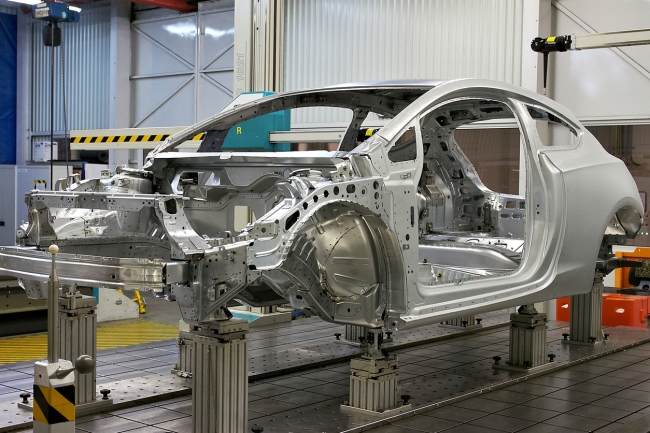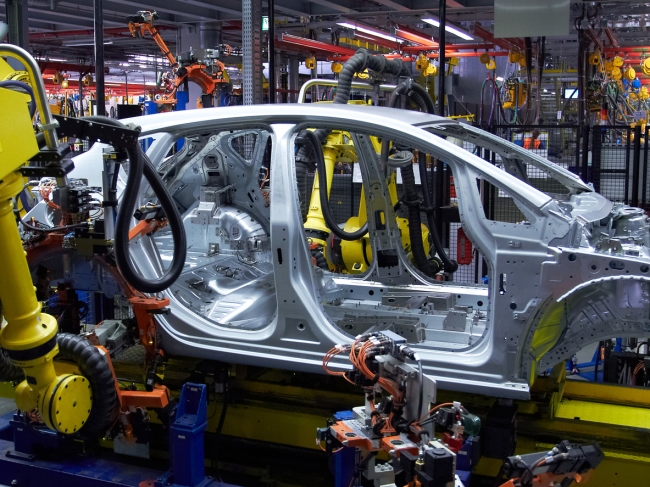3 minute read
WMG part of a £37m project to develop lightweight vehicles
A new research project, named Tucana, will focus on lighweighting technology, delivering stiffer and lighter vehicle structures with the help of experts from WMG, at the University of Warwick.
The research will develop world-leading cost effective, scalable carbon fibre composite solutions, with the view to boosting the performance of electric vehicles. The CO2 benefit of the project between 2023-2032, will be 4.5 million tonnes.

£18.7m government funding supports lightweight vehicle and powertrain structures, providing greater efficiency for low carbon vehicles / Picture: Getty/iStock
WMG will receive £4m, of the £18.7m government funding through the Advanced Propulsion Centre (APC), to drive the development of innovative lightweight vehicle and powertrain structures, building on the UK’s leading-edge capability in this area.
Project Tucana will allow the true environmental credentials of electric vehicles to be realised by enabling wider adoption. Tucana will deliver this step-change by addressing structural performance at a design, material and volume manufacturing-level which is currently unmet across the industry.
As part of the project WMG will manufacture the carbon fibre components, in their new Materials Engineering Centre which will has dedicated facilities for composite and hybrid structures. To gather the material optimisation and characterisation WMG experts, led by Professor Ken Kendall, will trial the manufactured materials on their newly installed composite materials processing equipment (which received £1.3m funding from the WMG centre High Value Manufacturing Catapult).
Tucana, brings together a consortium of world-leading academic and industry partners. Led by Jaguar Land Rover, other partners in the project are Expert Tooling & Automation Limited, Broetje-Automation UK Ltd, Toray International U.K. Limited, CCP Gransden Lltd, and Magna Exteriors (Banbury) Limited.

The project will create 518 new job, safeguard 50 jobs, and upskill 308 people / Picture: Getty/iStock
Professor Lord Bhattacharyya, Chairman and Founder of WMG, University of Warwick said, “It is vital that research and development in the automotive sector supports the UK’s Industrial Strategy and the move towards increasing the number of electric vehicles. I am delighted that WMG’s contribution to the project will help in establishing a world class UK supply chain for materials and manufacture for the lightweighting of vehicles.”
Professor Dr Gero Kempf, Chief Engineer, Jaguar Land Rover added, “With the grant awarded to Project Tucana, we can take an industry leading role in the development of next generation technologies specifically, lightweight body structures. Together with industry experts and academia we will collaboratively deliver innovative carbon fibre solutions, achieving a performance that will further enhance driver experience for future premium electric vehicles.”
Ian Constance, Chief Executive of the APC, said: “The development of low carbon vehicle technology is a crucial part of the future success of the UK automotive industry. The tenth instalment of APC funding, and the innovations it will support, will help further establish the UK as a leading destination for the development of low carbon propulsion technology. Lightweighting technology is a major part of improving the efficiency and desirability of next generation low and zero emission capable vehicles and an important part of our portfolio.”
Professor Ken Kendell, from WMG concluded: “The funding obtained from WMG centre HVM Catapult for the composite materials processing equipment directly strengthened and supported our winning bid to the APC, allowing us to remain at the cutting edge of lightweight automotive composite manufacture.”